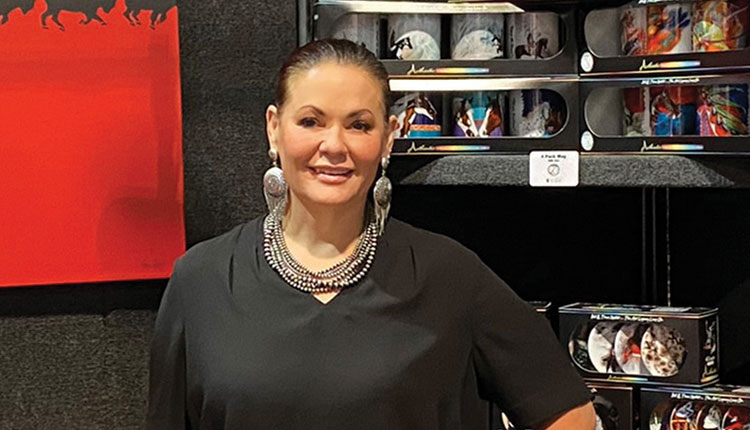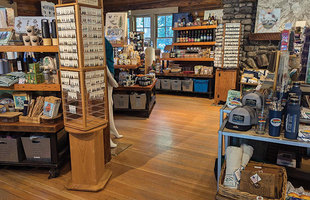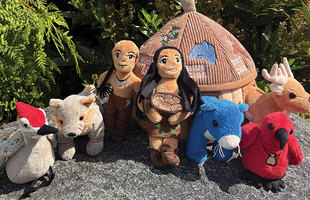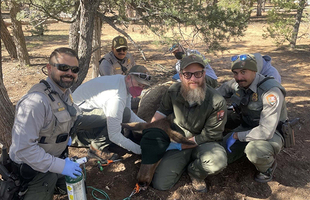
Q: How do Native American craftspeople verify their work?
A: I’m a federally recognized, second-generation Cherokee nation artist and I had to prove my lineage to receive a certificate with an assigned number. I include this authentication on all of my products to document this so store owners have verification that they are selling a Native American, made in the USA product. I always educate buyers by showing them my card as proof so they can ask this question when sourcing products.
Q: Do Native American artists who are certified also sell inspired products?
A: I produce authentic products in my studio, and I also license and offer contract items that vendors produce overseas. I consider myself an artist and a businessperson. Many retailers are looking for a variety of price points. Most customers who want authentic items are collectors. But people looking for souvenirs might want an inspired product that suits their budget.
Q: What are other tips you would give retailers?
A: Educate yourself on the Indian Arts and Crafts Act of 1990. It’s about truth in advertising. And if you’re looking for authentic Native American-made products, ask for verification.


